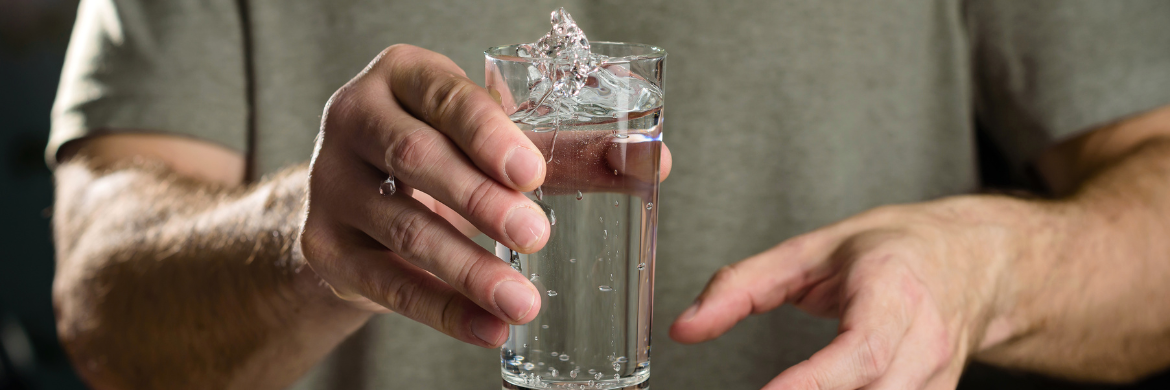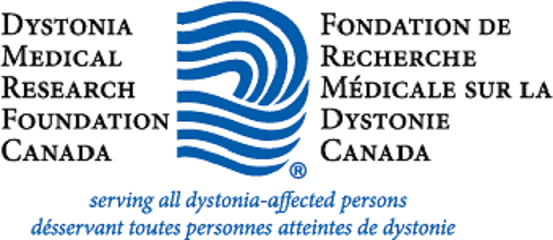
Myoclonus-dystonia (M-D) is a rare and complex neurological movement disorder that affects individuals and families around the world. Treatments are available and researchers are actively pursuing improved therapies and ultimately a cure. Resources are available to help support affected individuals and families.
Terms used to describe myoclonus-dystonia include: myoclonus dystonia, inherited myoclonus-dystonia syndrome, DYT11 dystonia
Note: Some researchers believe myoclonic dystonia is a variation of hereditary essential myoclonus.
- Symptoms
Myoclonus-Dystonia (M-D) is a movement disorder characterized by a combination of rapid, brief muscle contractions (myoclonus) and/or sustained twisting and repetitive movements that result in abnormal postures (dystonia).
The myoclonus jerks typical of M-D most often affect the neck, trunk, and upper limbs. Approximately 50% of affected individuals have dystonia affecting the neck and/or hand. In some cases, dystonia is the only movement symptom. Some individuals have tremor.
M-D typically includes more than movement symptoms. Non-movement features may include obsessive compulsive disorder, depression, anxiety, alcohol abuse, and panic attacks. M-D does not affect cognition, intelligence, or shorten lifespan.
Symptoms can vary significantly among individuals, including within the same family. Individuals with M-D report fluctuation of symptom severity, episodic escalation of movement symptoms (with or without trigger event), respiratory symptoms, and voice impairment.
Symptoms typically begin in childhood or early adolescence but may also first appear in adulthood. Many individuals experience a dramatic decrease of the myoclonus jerking symptoms, and sometimes improvement of dystonia, upon ingesting alcohol.
- Cause
M-D often affects several members and generations of a family, demonstrating a clear genetic component. M-D can also occur without a family history. About 30-40% of individuals and families impacted by M-D have mutations in the SGCE gene (also referred to as DYT11).
Individuals who develop M-D may have inherited the disorder from a parent or have a brand new mutation. M-D is dominantly inherited, which means that only one parent needs to have a mutation for a child to develop M-D.
Children who inherit an SGCE mutation from their father will almost always develop symptoms. Only 5% of children who inherit the mutation from their mother will develop symptoms.
- Diagnosis
At this time, there is not yet a cure for myoclonus-dystonia (M-D), but treatments are available to help minimize symptoms. Treatment must be highly customized to the individual. Each component of the M-D—the myoclonus, the dystonia, and the mood component—requires attention for complete care and the most positive results.
Therapies typically include oral medications and botulinum neurotoxin injections. Complementary therapies such as physical or occupational therapy may support medical treatments.
If obsessive compulsive disorder, depression, anxiety, personality disorders, alcohol abuse, and/or panic attacks are present, these symptoms must also be addressed. Although sometimes difficult to talk about, individuals with M-D who experience signs of these complications are encouraged to bring them to the attention of their treating physician. If family members or loved ones observe signs of such complications, it may be helpful to share their concerns with the individuals and/or with healthcare providers.
- Treatment
Oral medications that may be helpful for the treatment of myoclonus dystonia include benztropine, clonazepam, neuroleptics, dopamine agonists, and perhaps gamma-hydroxybutyrate (GHB). A striking feature in some people with myoclonus dystonia is the alleviation of symptoms upon ingestion of alcohol, but response varies greatly even within individual families. Deep brain stimulation surgery is emerging as a promising option. Complementary therapies may be explored, especially physical therapy, occupational therapy, and regular relaxation practices.
- What Type of Doctor Treats Myoclonus-Dystonia?
The type of doctor that is typically trained to diagnose and treat myoclonus-dystonia is a neurologist with special training in movement disorders, often called a movement disorder specialist.
- Living with Myoclonus-Dystonia
Living well with myoclonus-dystonia (M-D) is possible. The early stages of onset, diagnosis, and seeking effective treatment are often the most challenging.
Individuals living with M-D are strongly encouraged to:
• Seek out the best medical care
• Learn about dystonia and treatment options
• Develop a multi-layered support system of support groups, online resources, friends, and family
• Seek expert mental health professionals to diagnose and treat possible co-existing depression or anxiety disorders
• Investigate complementary therapies
• Get active within the dystonia community
Thank you to Dystonia Medical Research Foundation (USA) for allowing us to share this information. The DMRF is a 501(c)(3) non-profit organization dedicated to advancing research for improved dystonia treatments and ultimately a cure, promoting awareness, and supporting the well-being of affected individuals and families.
